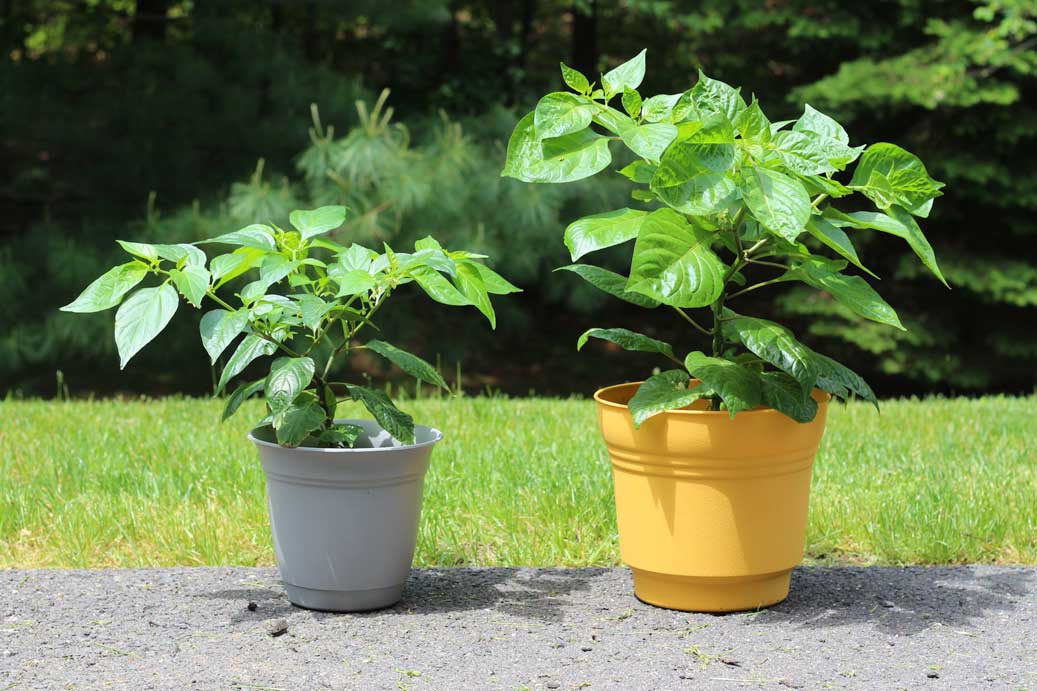To make peppers grow faster, provide them with proper sunlight, regular watering, and a nutrient-rich soil. Growing peppers faster can be achieved by ensuring they receive at least 6-8 hours of direct sunlight daily, watering them consistently to keep the soil moist but not waterlogged, and using a well-draining soil mixed with compost or organic matter.

Credit: peppergeek.com
Additionally, applying a balanced fertilizer rich in nitrogen, phosphorus, and potassium can promote faster growth. Pruning off any diseased or damaged parts of the plants can also redirect energy towards healthy growth. Following these simple steps can help you grow peppers faster and get a bountiful harvest.
How to Make Peppers Grow Faster : Step by Step Guide
Providing The Right Environmental Conditions
Peppers are a popular vegetable to grow, and if you’re looking to accelerate their growth, providing the right environmental conditions is critical. One important factor is **optimal sunlight exposure**. Peppers require at least six hours of direct sunlight daily. Ensure they are placed in a spot where they receive abundant sunlight throughout the day.
Another key consideration is **adequate soil moisture**. Peppers thrive when the soil is consistently moist but not waterlogged. Regular watering is essential, particularly during dry periods. Monitor the soil moisture levels and adjust your watering schedule accordingly.
Moreover, **proper soil pH levels** play a vital role in the growth of peppers. They prefer a slightly acidic soil with a pH range of 6.0 to 6.8. Test the soil pH using a kit and adjust it by adding organic matter or using amendments to create the ideal conditions.
Choosing The Right Pepper Varieties
Choosing the right pepper varieties is crucial to make them grow faster. When selecting fast-growing pepper varieties, it is important to compare their growth rates. Factors such as heat tolerance and disease resistance should also be considered. By choosing pepper cultivars that have a reputation for growing quickly, gardeners can ensure a faster growth rate in their pepper plants.
Implementing Effective Planting Techniques
Starting seeds indoors is a crucial step in accelerating pepper growth. Use high-quality seed starting mix to prevent diseases and choose a warm and well-lit spot for germination. Keep the soil moist and provide adequate air circulation to ensure healthy seedlings.
Transplanting seedlings at the right time is essential for faster growth. Wait until all danger of frost has passed and the soil has warmed up before moving seedlings outdoors. Gradually acclimatize them to outdoor conditions by placing them outside for a few hours each day.
Proper spacing and pruning of pepper plants optimize their growth. Space plants according to the pepper variety’s recommended guidelines, ensuring proper air circulation and sunlight exposure. Regularly remove suckers and lower branches to focus the plant’s energy on fruit production.
Frequently Asked Questions On How To Make Peppers Grow Faster
What Is The Trick To Growing Peppers?
To grow peppers successfully, provide plenty of sunlight, water consistently, use well-draining soil, and fertilize regularly.
Why Are My Pepper Plants Growing So Slow?
Your pepper plants may be growing slow due to insufficient sunlight, low temperatures, improper watering, or nutrient deficiency.
What Does Epsom Salt Do For Peppers?
Epsom salt helps peppers by promoting healthy growth, improving nutrient uptake, and preventing magnesium deficiency.
How Do You Encourage Bell Peppers To Grow?
To encourage bell peppers to grow, provide them with full sun, well-drained soil, regular watering, and proper spacing.
Conclusion
To summarize, growing peppers faster requires a combination of proper care, soil condition, and nutrient management. By providing adequate sunlight and warmth, watering consistently, and protecting the plants from pests and diseases, you can encourage faster growth. Additionally, choosing the right variety of peppers and starting them from seed indoors can give them a head start.
Remember to provide sufficient space for the plants to grow and support them with stakes or cages as they mature. Regularly apply organic fertilizers rich in nitrogen, phosphorus, and potassium to promote healthy growth. Keep in mind that peppers are sensitive to cold temperatures, so consider using row covers or other protective measures during chilly nights.
By following these tips and actively monitoring your plants, you can enjoy a bountiful pepper harvest in no time. Happy gardening!

